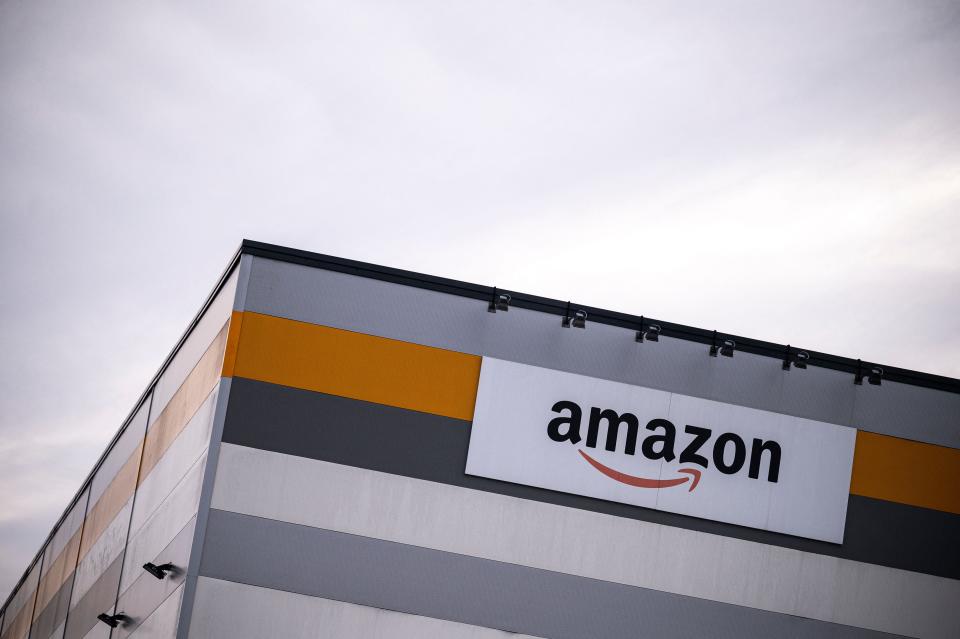‘Loophole’ in G7 corporation tax deal could let Amazon off, report claims

Picture shows Amazon’s logo on the company’s premises in Brandizzo, near Turin
(AFP via Getty Images)In a “historic” move, the G7 group of wealthy nations agreed to make companies such as Apple, Microsoft, and Google pay more taxes, however experts say Amazon may escape taxation unless a large loophole in the global deal is plugged.
According to a joint statement shared on Saturday by the G7 finance ministers, the deal would tackle tax avoidance by “the largest and most profitable multinational enterprises”.
As part of the deal, companies would pay a global minimum corporation tax of 15 per cent, and for the largest global firms such as Google, Facebook, Amazon and Microsoft, 20 per cent of the profits would be reallocated to the countries where sales have taken place.
“The global minimum tax would also help the global economy thrive, by levelling the playing field for businesses and encouraging countries to compete on positive bases, such as educating and training our work forces and investing in research and development and infrastructure,” Janet Yellen, US Secretary of the Treasury, tweeted.
The global minimum tax would also help the global economy thrive, by leveling the playing field for businesses and encouraging countries to compete on positive bases, such as educating and training our work forces and investing in research and development and infrastructure.
— Secretary Janet Yellen (@SecYellen) June 5, 2021
However, since the move would only apply on “profit exceeding a 10% margin for the largest and most profitable multinational enterprises,” experts say it could rule out the tech giant Amazon whose profit margin in 2020 was only 6.3 per cent.
They point out that the company, with a market value of USD 1.6 trillion (£1.1 trillion) and sales of USD 386 billion in 2020, would slip out with the help of a loophole in the proposal since it runs its online retail business at very low profit margins.
Next, there are many accounting problems in what has been announced. Who is defining profit margins? Is it one year or over time for example? And why 10%? That brings some pharmaceuticals in but leaves Amazon out. Is that what was intended?
— Richard Murphy (@RichardJMurphy) June 5, 2021
Richard Murphy, Professor of Accounting, Sheffield University Management School, noted on Twitter that while the deal is historic and a step in the right direction, the 15 per cent minimum tax rate is “far too low.”
He believes the deal also comes with several accounting problems.
“Who is defining profit margins? Is it one year or over time for example?” Mr Murphy tweeted.
“And why 10%? That brings some pharmaceuticals in but leaves Amazon out. Is that what was intended?” he added.
Ms Yellen told Reuters that she expected Facebook and Amazon to be covered by the new proposal. “It will include large profitable firms and those firms, I believe, will qualify by almost any definition,” she said.
Experts, including those from the Fair Tax Foundation, also point out that under a segregated approach, Amazon would pay taxes for its subsidiaries like Amazon Web Services – the tech giant’s web hosting arm – which had a profit margin of 30 per cent in 2020.
Amazon Web Services, which made bulk of Amazon's profit last three years, has a profit margin of c.30%. If G20 follow up G7 with a segmental approach then AWS profit would be in scope and subject to the new formula apportionment, which factors in sales - ie this is a real story
— Fair Tax Foundation (@FairTaxMark) June 6, 2021
They say wider global negotiations at the G20 summit in Venice in July should set up tougher rules in place so that businesses do not tweak their operations to remain under the 10 per cent profit threshold in order to avoid taxes.
Read More
Rishi Sunak announces ‘historic’ deal to force tech giants to pay more tax
New Amazon feature will share users’ internet connection if they don’t opt out
What is the ‘scout mindset’? The self-help technique for making better decisions

 Yahoo Finance
Yahoo Finance 